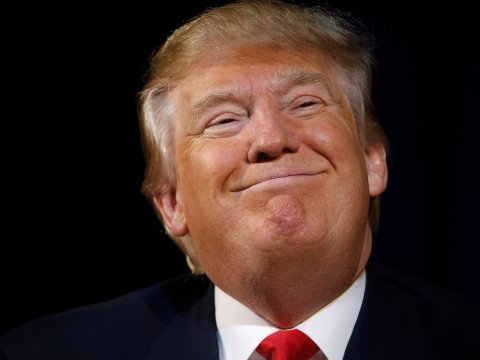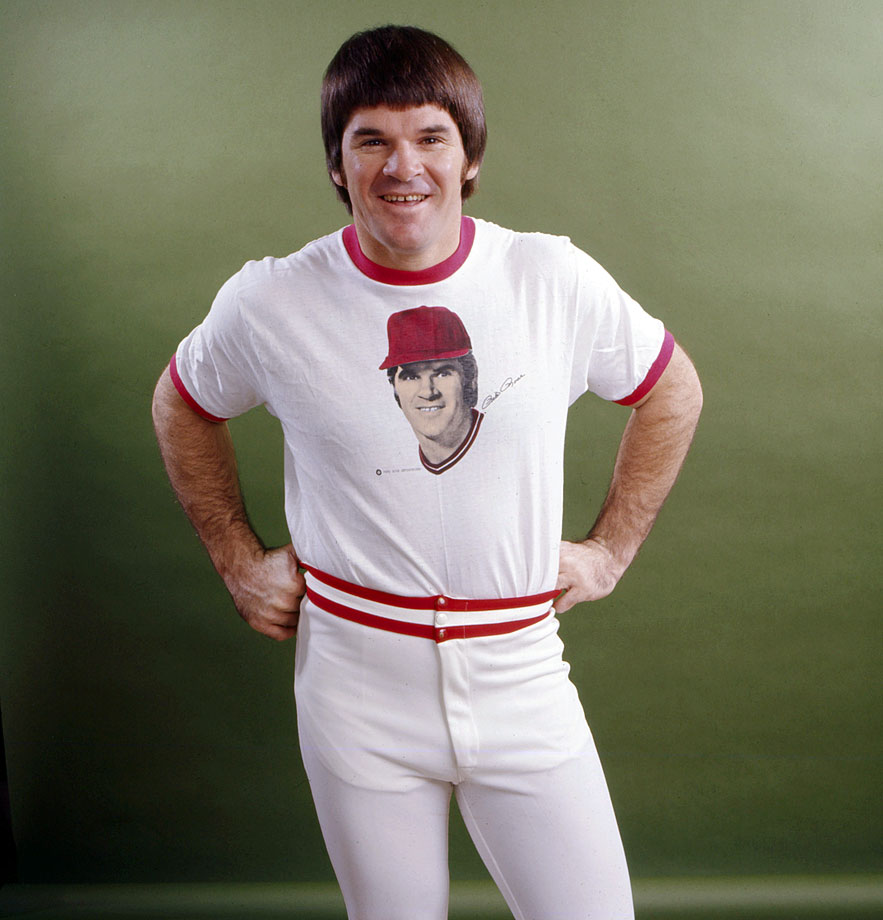Posted on February
27, 2020
Corrupt? Absolutely!
Trump loves those who lack ethics
by
Daniel
Clark
When President Trump asked Ukrainian President Volodymyr Zelensky to investigate
Joe and Hunter Biden, his motivation was not to gain an upperhand against a
potential electoral opponent, the Trumpies
insisted. He was merely crusading
against corruption. It's what he
does. It's an obsession, really. Everyone knows that if there's anything
Donald Trump cannot abide, it's corruption.
At least that was the story during his
impeachment. Since he's been acquitted,
the president has been flaunting his willingness to tolerate corruption of all
sorts. Take, for example, his defense of
his cartoonish confidant Roger Stone, whose sentencing had been a source of
controversy in recent weeks. Trump
insists his friend did "nothing," and that "nobody can even define what he
did." In fact, Stone, a self-described
dirty trickster, has been convicted of lying to Congress, obstruction of
justice, and witness tampering. It's the
last of these three charges that was the most troubling, and easiest to prove.
 Stone
had related to Congress the self-aggrandizing fib that he was personally
connected to Wikileaks founder Julian Assange, adding
that talk radio host and fringe political candidate Randy Credico
was an intermediary who relayed information from Assange to Stone about Hillary
Clinton. One slight problem, it wasn't
true. Stone tried to pressure Credico into supporting his story by suggesting that he "do
a Frank Pentangeli," referencing a character from The Godfather who was intimidated into
perjuring himself before the Senate.
When Credico refused, Stone sent him a text
message saying "prepare to die."
Stone
had related to Congress the self-aggrandizing fib that he was personally
connected to Wikileaks founder Julian Assange, adding
that talk radio host and fringe political candidate Randy Credico
was an intermediary who relayed information from Assange to Stone about Hillary
Clinton. One slight problem, it wasn't
true. Stone tried to pressure Credico into supporting his story by suggesting that he "do
a Frank Pentangeli," referencing a character from The Godfather who was intimidated into
perjuring himself before the Senate.
When Credico refused, Stone sent him a text
message saying "prepare to die."
If behavior like this were excused by the authorities,
there would literally be no justice in our country. Nobody who purports to be animated by a need
to stamp out corruption would characterize such actions as "nothing."
Trump's recent round of pardons and commutations
practically treated corrupt people as an aggrieved political class, as if the
president were combating some form of bigotry through his defense of the
ethically challenged. Rod Blagojevich was
the governor of Illinois when Senator Barack Obama vacated his office in order
to become president. Having the power to
appoint Obama's successor, Blagojevich put the office up for sale, at one point
offering it in exchange for a position as national director of a nonprofit
affiliated with the Service Employees International Union. "I've got this thing and it's [expletive
deleted] golden, and I'm not just giving it up for [expletive deleted] nothing,"
the FBI recorded him saying.
Although he'd been convicted of wire fraud, attempted
extortion, and conspiracy to solicit bribes, Blagojevich maintains that he had
done nothing wrong, but was only engaging in "routine politics." Does Trump's commutation of his sentence
suggest that he agrees?
Among the other beneficiaries of Trump's clemency were
former San Francisco 49ers and Pittsburgh Penguins owner Edward DeBartolo Jr.,
who had paid off Louisiana Gov. Edwin Edwards $400,000 in exchange for a
riverboat gambling license, former New York police commissioner Bernard Kerik, who was convicted of tax fraud, and Judith Negron,
the owner of a mental health care provider called the American Therapeutic
Corporation, and ringleader of a Medicare fraud scheme that had cost the
taxpayers $205 million.
 Trump
has even taken the time to make a pitch for letting Pete Rose into the Hall of
Fame, based on his contention that the record-setting slugger had "gambled, but
only on his own team winning." Rose did
frequently bet on the Reds to win, as well as betting on lots of games not
involving them, but he is not known to ever have bet against them. Does that mean the games were not tainted?
Trump
has even taken the time to make a pitch for letting Pete Rose into the Hall of
Fame, based on his contention that the record-setting slugger had "gambled, but
only on his own team winning." Rose did
frequently bet on the Reds to win, as well as betting on lots of games not
involving them, but he is not known to ever have bet against them. Does that mean the games were not tainted?
Pretend you're a big league manager who has bet a lot
of money on his team to win a Sunday afternoon game. In the meantime, you have to manage games on
Friday and Saturday. Both of these turn
out to be very close games, but how hard to you try to win them? Do you take a chance on exhausting your bull
pen, and leaving your pitching staff shorthanded for Sunday? The very pertinence of the question means
you've corrupted the game already.
Furthermore, people who gamble frequently tend to lose
a great deal of money. By the time Rose
was caught, he was hundreds of thousands of dollars in debt to mobsters. The potential for extortion this creates
ought to be plain for anyone to see. As
manager, Rose guided the Reds to four straight second-place finishes. Four pennant races add up to plenty of big
games in which one might be asked to do somebody a "favor."
Does Trump, former owner of the United States Football
League's New Jersey Generals, really not understand the ethical implications of
Rose's behavior? Rose certainly did,
which is why he angrily lied about it for 15 years, before issuing a
self-serving admission in his 2004 autobiography. Had the Generals' head coach behaved the same
way, there's little doubt Trump would have taken it more seriously. Unless an act of corruption personally harms
Trump, however, he seems to instinctively side with the corruptors, as if they
were heroic individuals being persecuted by an unjust system.
Take another look at the Zelensky
call. It's not enough to argue that it
did not nearly justify removing a president from office. Instead, the call had to be "perfect," and
why not? The Trumpies
defend Donald Jr.'s Trump Tower meeting with the Russians by claiming that
"anybody" would meet with representatives of a foreign government to get dirt
on a domestic political opponent. Once
one convinces oneself of that, what could be so wrong about soliciting such
information from a foreign head of state.
Moreover, if there's nothing wrong about asking for this information,
then why would one not use what leverage one has at one's disposal to obtain it? Situational ethics are just that easy.
It's not that President Trump is nonjudgmental. After all, he has called his former attorney
Michael Cohen a rat, accused former national security advisor John Bolton of
treason, and given political opponents allegedly witty nicknames that routinely
include characterizations like lying, corrupt and crooked.
According to the rules of Trumpian
ethics, no behavior deserves to be punished, wrong as it may be by the book,
just as long as the person engaging in that behavior does nothing to cross
Donald J. Trump. Not coincidentally,
this also means that Trump himself can do no wrong.
The Shinbone: The
Frontier of the Free Press